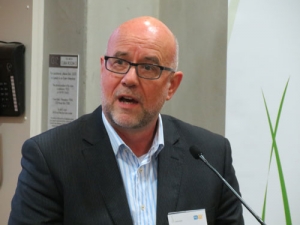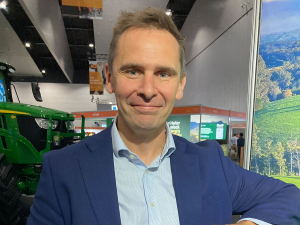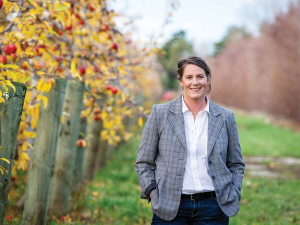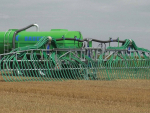A Massey University scientist says it’s important any debate on GE is conducted on the knowledge that now exists about the contentious subject.
Professor Peter Kemp, who heads Massey’s Institute of Agriculture and Environment, says the emotional debate on GE in the early 2000’s was based on the understanding of it at the time.
“It was an important debate, but 10-15 years later the technology has moved on. Yet I don’t think our wider public understanding and debate on that has moved on at all,” he told Rural News.
“We are still debating as if it were 2000, rather than 2015 where we are a lot more sophisticated in our understanding of GM. We now understand better where it would and wouldn’t work. There was some over-excited optimism 10-15 years ago, but a lot of that has gone away and it’s more realistic.”
He is not sure if everyone has kept up with these changes in the science.
According to Kemp, it’s hard to predict what the impact on New Zealand will be if it continues effectively GE-free, because the effort to get approval for field trials is so difficult and time consuming.
Possibly at some point in the future NZ will suddenly think it’s on the wrong bus, he says.
“Other countries have a whole generation of young people who have gone through school, done the hard yards on the genetic biochemistry and they got to use it,” he adds.
But Kemp says in NZ talented scientists get to the point where they realise their career opportunities in the field of GE are limited and they seek and get good jobs overseas. He’s seen this happen many times.
“Ultimately you have to test [GE] in the field and while it’s fun doing the fundamental work, if you are more of an applied person you want to see it actually being done. Currently none of our scientists in the CRI’s or the universities ever get to see it used [in the field],” Kemp explains.
“It’s not the end of the world, but it limits our capability in a way that might not be obvious today. But at some point we will realise that there is more to this genetic modification than we realised. It’s cleverer than we realised, we could have used some of it, but we won’t really have the capability, but worse still we won’t have the patents or the access to the material,” he adds.
A lot of it is in the jeans
While he says he doesn’t want to overplay the issue, Kemp says there is a ‘green’ side to GE.
Cotton crops today use a lot less insecticide than 15 years ago because cotton has transgenic genes which give it resistance to insects.
“So there are fewer insecticides used in cotton production than there were. The insecticides, by and large, are nastier chemicals than, say, herbicides, and if you have a more reliable crop with a more reliable yield you don’t need as much land to produce your cotton, canola or soya beans,” Kemp explains.
“So in a sense you are protecting more forest land from being cleared so there is some green, positive side to GE, which probably gets overlooked in the rush to condemn it.”
Kemp says another interesting to side to GE, well known in science and agricultural circles, relates to the jeans people frequently wear.
“Most of the cheap jeans are made in China from fabric almost certain to be made of transgenic cotton,” he told Rural News. “It could be argued that people who are wearing such jeans and protesting about GE are a little two-faced.”



















